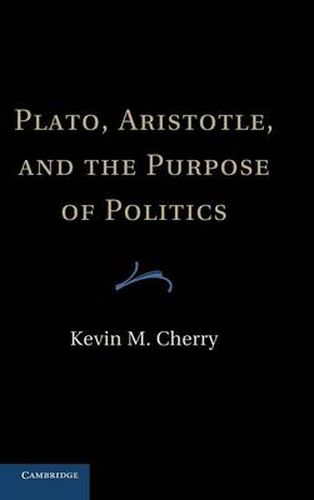Readings Newsletter
Become a Readings Member to make your shopping experience even easier.
Sign in or sign up for free!
You’re not far away from qualifying for FREE standard shipping within Australia
You’ve qualified for FREE standard shipping within Australia
The cart is loading…






In this book, Kevin M. Cherry compares the views of Plato and Aristotle about the practice, study and, above all, the purpose of politics. The first scholar to place Aristotle’s Politics in sustained dialogue with Plato’s Statesman, Cherry argues that Aristotle rejects the view of politics advanced by Plato’s Eleatic Stranger, contrasting them on topics such as the proper categorization of regimes, the usefulness and limitations of the rule of law, and the proper understanding of phronesis. The various differences between their respective political philosophies, however, reflect a more fundamental difference in how they view the relationship of human beings to the natural world around them. Reading the Politics in light of the Statesman sheds new light on Aristotle’s political theory and provides a better understanding of Aristotle’s criticism of Socrates. Most importantly, it highlights an enduring and important question: should politics have as its primary purpose the preservation of life, or should it pursue the higher good of living well?
$9.00 standard shipping within Australia
FREE standard shipping within Australia for orders over $100.00
Express & International shipping calculated at checkout
In this book, Kevin M. Cherry compares the views of Plato and Aristotle about the practice, study and, above all, the purpose of politics. The first scholar to place Aristotle’s Politics in sustained dialogue with Plato’s Statesman, Cherry argues that Aristotle rejects the view of politics advanced by Plato’s Eleatic Stranger, contrasting them on topics such as the proper categorization of regimes, the usefulness and limitations of the rule of law, and the proper understanding of phronesis. The various differences between their respective political philosophies, however, reflect a more fundamental difference in how they view the relationship of human beings to the natural world around them. Reading the Politics in light of the Statesman sheds new light on Aristotle’s political theory and provides a better understanding of Aristotle’s criticism of Socrates. Most importantly, it highlights an enduring and important question: should politics have as its primary purpose the preservation of life, or should it pursue the higher good of living well?